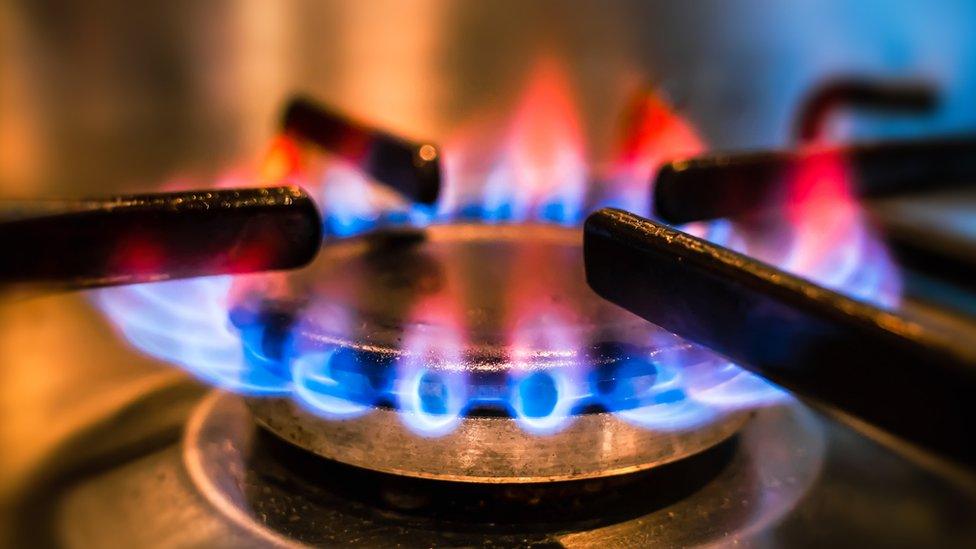Fuel poverty: More terminally ill people unable to afford heating
- Published
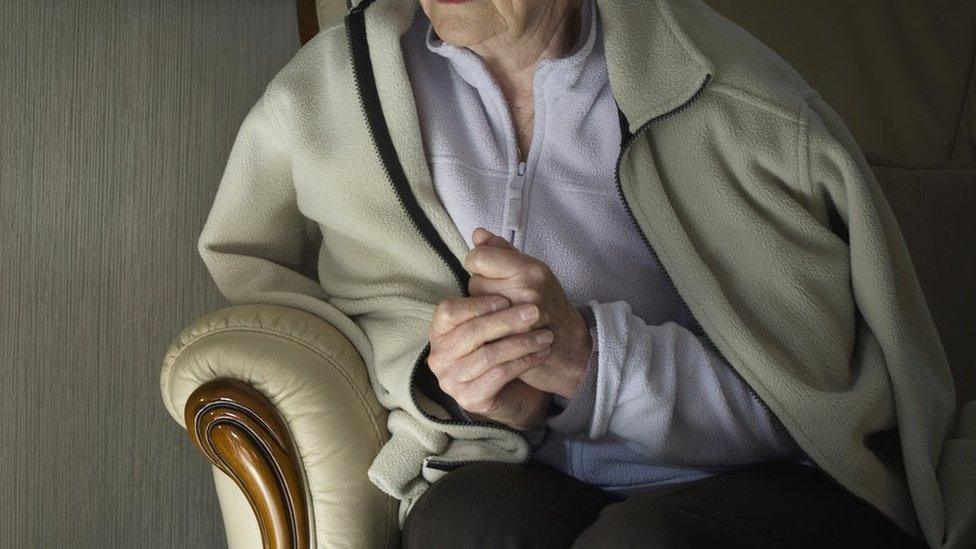
Many vulnerable people are struggling to heat their homes as fuel prices rise
A Northern Ireland energy charity has said it is increasingly hearing from terminally ill people who are heading into winter unable to pay for heating.
A training officer from National Energy Action (NEA) spoke to BBC NI Spotlight about the cost of living crisis.
Nichola McDougall said they are "finding a lot of people with terminal illnesses and they just can't afford to keep the heat on constantly all day".
The charity is part of a network that provides a range of support.
This includes benefits advice and assistance to insulate homes.
Spotlight reporter Mandy McAuley joined the charity during a visit to a cancer patient who needed a £100 top-up to heat her home.
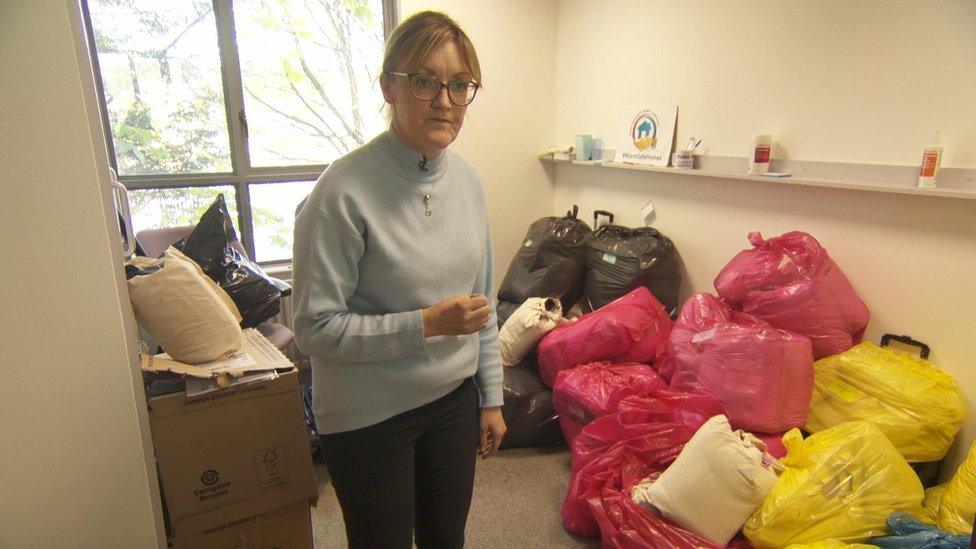
Nichola MacDougall said her charity is receiving calls from terminally ill people in fuel poverty
Danny Wilson, Macmillan Cancer Support's community programme manager for the greater Belfast area, which provides the comfort packs that are distributed by NEA, said "a growing number of terminally ill cancer patients are struggling to heat their homes and this is impacting on their health".
He added: "20% of all cancer patients seen by Connected Community Care for Cancer in the greater Belfast area now have major difficulties heating their home.
"The number of terminally ill cancer patients the team sees in the greater Belfast area struggling to heat their homes is now well into double figures."
'The cold does kill'
Pat Austin, the director of the NEA, is concerned rising fuel prices will leave many more vulnerable people struggling to heat their homes.
"Without an urgent intervention this Christmas, we will see an increase in cold weather-related deaths," she said.
"As stark as that sounds, the cold does kill and people living for lengthy periods of time without heat is very, very bad for their health, and will put additional pressure on health systems, hospital waiting times and beds."
Ms Austin is now calling for the Department for Communities, which she says has the key responsibility for fuel poverty, to implement emergency payments for households most in need as well as a fuel poverty taskforce.
At a press conference at Stormont, Community Minister Deirdre Hargey told Spotlight that £3m has been given to local government to help with relief.
She said there was "already support out there", referring to "a discretionary support which people can go to for that crisis support".
"The executive is having a dedicated discussion going forward in terms of addressing the crisis," she added.
'Money worries always in my mind'
The Spotlight programme features people across Northern Ireland currently on Universal Credit dealing with the loss of the £20 a week uplift payment in October as well as rising fuel costs.
Rosa Thompson, who lives with her two sons in Ballycastle, County Antrim, is surviving on less than £150 a week in benefits after paying rent on their home.
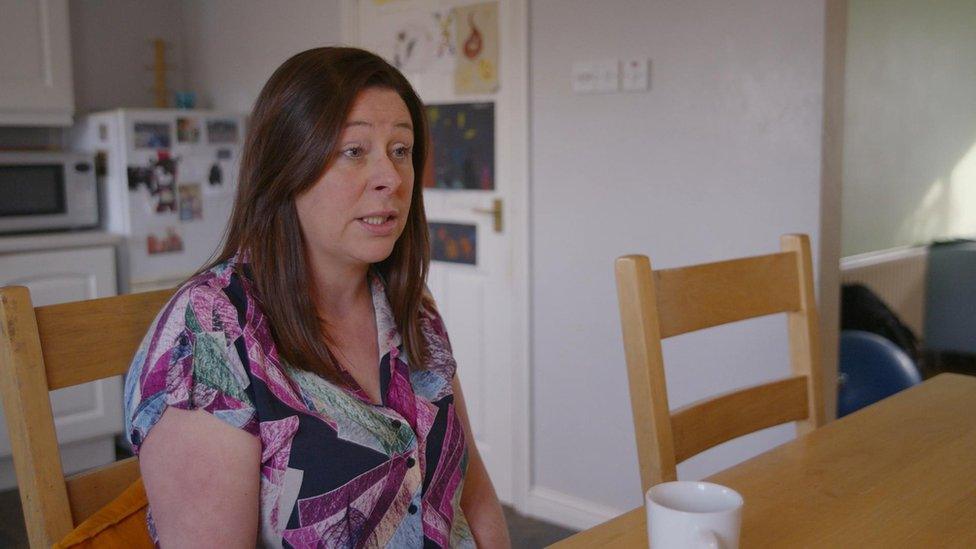
Mother-of-two Rosa Thompson said she has had to resort to loans to pay for essentials
"I try my very best to make it stretch. There are places where the money just won't go and I can only feed my children and make sure they are warm enough and that they are safe.
"I often don't make it stretch and I am the person that takes the hit. Worry about money is always on the back of my mind."
She is now one of many in Northern Ireland who is hard hit by soaring fuel prices.
According to government figures, fuel poverty effects 22% of households in Northern Ireland. That is where they are spending more than 10% of their total household income on fuel.
'Back to the '70s'
Ms Thompson said she has been forced to take out loans to cover fuel payments and will do so again.
"You have to borrow there is no way out of that. I have in the past been to payday lenders and that was before they took away the uplift."
Bob Stronge, from the charity Advice NI, said the level of financial hardship in Northern Ireland is now at an unprecedented level.
"I remember going back to the '70s, when we had really extreme poverty and people were really struggling, and I think that we're nearly back there, for many, many, many communities."
He said the rising cost of living and extreme poverty has led to an alarming number of people calling their advice line, who have fallen victim to illegal money lenders.
BBC NI Spotlight was broadcast on BBC One NI Tuesday November 16 at 22.35 GMT and will be available on the iPlayer
Related topics
- Published14 June 2022
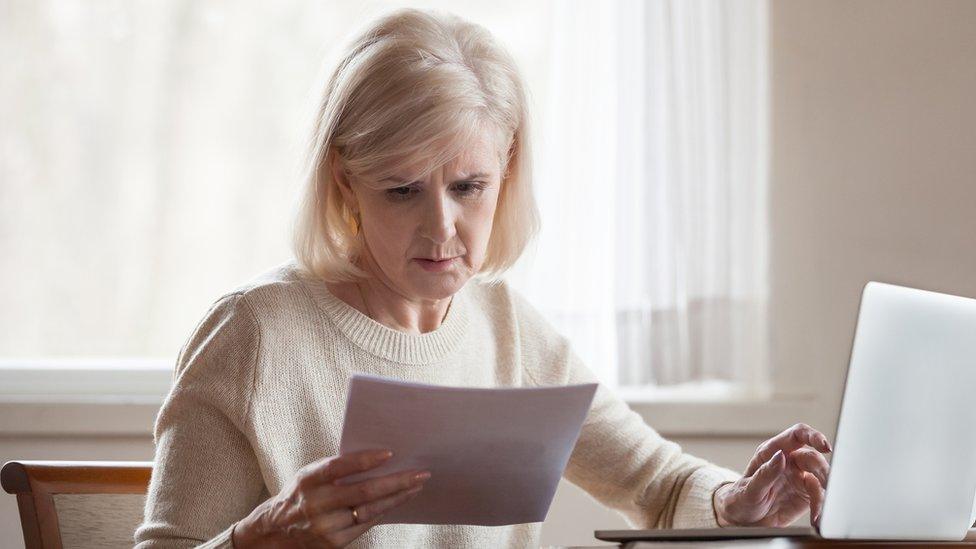
- Published11 November 2021
